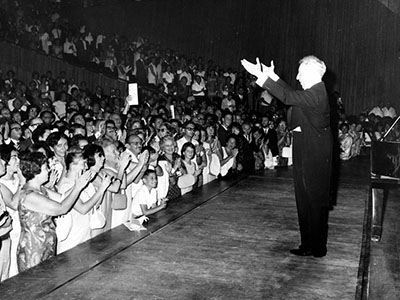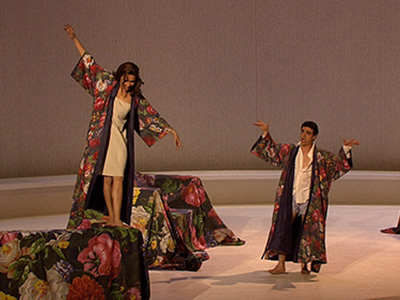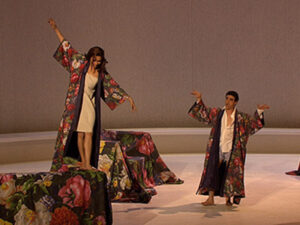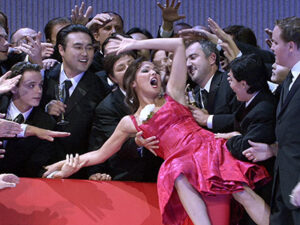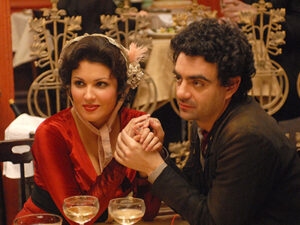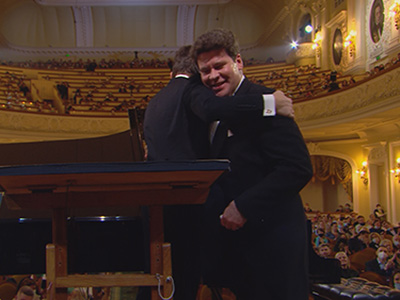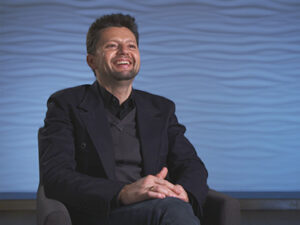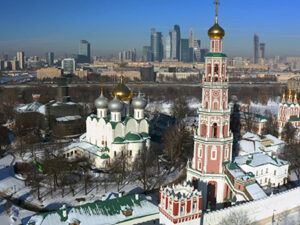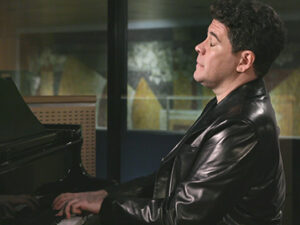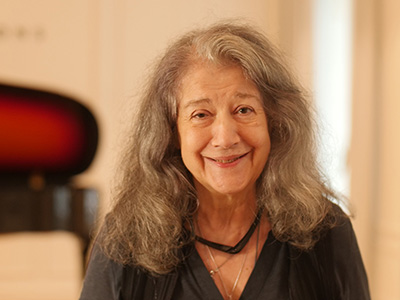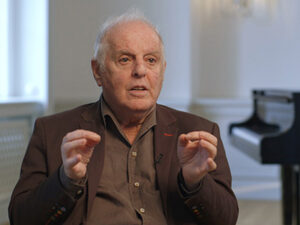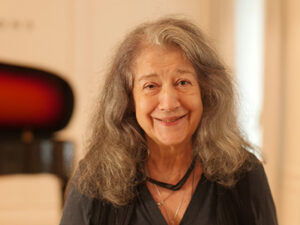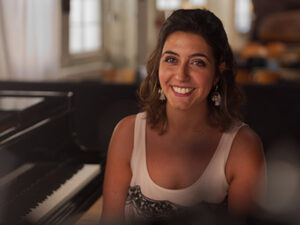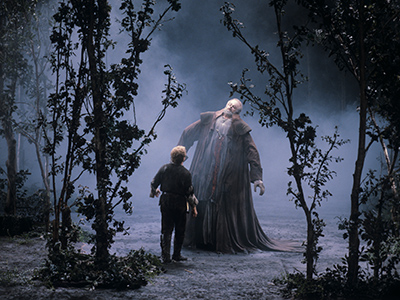
Magic Moments of Music | The 1976 Bayreuth Centenary Ring
Magic Moments of Music | The 1976 Bayreuth Centenary Ring
A film by Eric Schulz, ZDF/arte and C Major Entertainment 2021, 43 min.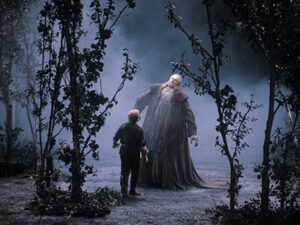 The opera production sent ripples through art and society even before the curtain was lifted. Leaflets were distributed, signatures were collected and musicians left the orchestra pit in disgust, all because of disagreements over the bold new interpretation of Wagner’s Ring Cycle by conductor Pierre Boulez. The conservative press turned against the politically critical and anti-capitalist interpretation of Richard Wagner’s major work, The Ring of the Nibelung. After Ingmar Bergmann had turned down the invitation, the festival hired 31-year-old television and film director Patrice Chéreau, a relative unknown who had only directed two operas previously, by Rossini and Offenbach. Chéreau’s submitted concept for the multi-part, many hours long Ring Cycle had fitted on a single typewritten page. Once hired, he had just four months to prepare the monumental dramatic work.
The opera production sent ripples through art and society even before the curtain was lifted. Leaflets were distributed, signatures were collected and musicians left the orchestra pit in disgust, all because of disagreements over the bold new interpretation of Wagner’s Ring Cycle by conductor Pierre Boulez. The conservative press turned against the politically critical and anti-capitalist interpretation of Richard Wagner’s major work, The Ring of the Nibelung. After Ingmar Bergmann had turned down the invitation, the festival hired 31-year-old television and film director Patrice Chéreau, a relative unknown who had only directed two operas previously, by Rossini and Offenbach. Chéreau’s submitted concept for the multi-part, many hours long Ring Cycle had fitted on a single typewritten page. Once hired, he had just four months to prepare the monumental dramatic work.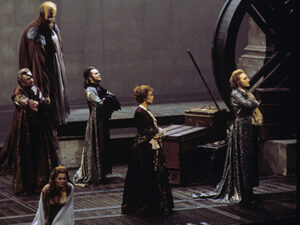
Celebrations of the 100th anniversary of the Bayreuth Festival in 1976 were set to focus on a new production of Richard Wagner’s Ring Cycle. In the foyer of the Festspielhaus for the supposedly joyous start of events, Bayreuth’s regular patronage were highly displeased and vocal about what they termed “degenerate art”. Other criticism of the production included “puppet theatre” and a “brutal violation”, while Wagner was said to be “turning in his grave“. In Mannheim and Heidelberg, citizens’ initiatives were founded with the slogan “site security for Wotan” and attempts were made to disrupt the opening performance with booing. There were even sporadic scuffles and fistfights.
For his own staging, Patrice Chéreau was strongly influenced by the socio-political writings of Richard Wagner that were penned around the time of his work on the Ring Cycle. Far from leftist ideology, these were an attempt from Wagner to lend a mythological foundation to an epoch and to capture the sentiments of the time. In Chéreau’s hands, the Ring Cycle became an allegory of the industrial age in the second half of the 19th century, with all the political implications that this entailed. His unprecedented approach was to understand the Ring of the Nibelung as “a description of the terrible perversions of society that is rooted in this preservation of power” and to unmask this through the “mechanisms of a strong state and the opposition”. In particular, the Altwagnerians (who opposed any modernisation of Richard Wagner’s works) and right-wing conservative circles were vexed by this new interpretative approach. Despite the overwhelming hostility, festival director Wolfgang Wagner and the directorial team stayed true to their concept and gave over the stage to their own concept of art.
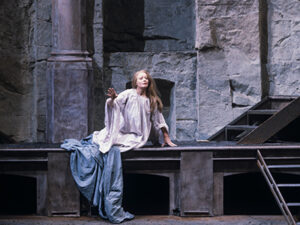 The “Centenary Ring” was a fulfilment of Richard Wagner’s dictum that the Ring Cycle should represent a musical synthesis of the arts. With the staging, set design and lighting, costumes, musical interpretation and, last but not least, the exceptional singing of the numerous soloists and choir, a legend was born. When the curtain came down, the Franco-German project was already being celebrated as a musical triumph, and in time the production would be celebrated as an event of the century.
The “Centenary Ring” was a fulfilment of Richard Wagner’s dictum that the Ring Cycle should represent a musical synthesis of the arts. With the staging, set design and lighting, costumes, musical interpretation and, last but not least, the exceptional singing of the numerous soloists and choir, a legend was born. When the curtain came down, the Franco-German project was already being celebrated as a musical triumph, and in time the production would be celebrated as an event of the century.
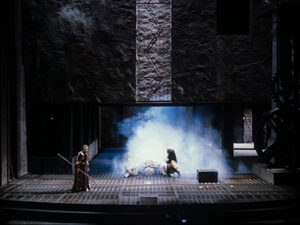 The film shows excerpts from this unforgettable opera event. Contemporary witnesses look back and comment on events both on and off the boards. Soprano Dame Gwyneth Jones, contralto Hanna Schwarz and tenor Heinz Zednik were on stage as it unfolded; French director Vincent Huguet tells of his collaboration with Patrice Chéreau, whose assistant he would later become. The young singer Anna Prohaska, frequent Wagner singer Günther Groissböck and director Barrie Kosky have dealt at length with the Centenary Ring and talk about their impressions. The interviewees also include writer Friedrich Dieckmann, who authored one of the most important reviews of the events in Bayreuth.
The film shows excerpts from this unforgettable opera event. Contemporary witnesses look back and comment on events both on and off the boards. Soprano Dame Gwyneth Jones, contralto Hanna Schwarz and tenor Heinz Zednik were on stage as it unfolded; French director Vincent Huguet tells of his collaboration with Patrice Chéreau, whose assistant he would later become. The young singer Anna Prohaska, frequent Wagner singer Günther Groissböck and director Barrie Kosky have dealt at length with the Centenary Ring and talk about their impressions. The interviewees also include writer Friedrich Dieckmann, who authored one of the most important reviews of the events in Bayreuth.



